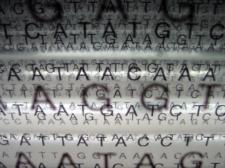Scientists unveil the ‘most clever CRISPR gadget’ so far
By Sharon Begley,
STAT
| 04. 20. 2016
Untitled Document
For all the hoopla about CRISPR, the revolutionary genome-editing technology has a dirty little secret: it’s a very messy business. Scientists basically whack the famed double helix with a molecular machete, often triggering the cell’s DNA repair machinery to make all sorts of unwanted changes to the genome beyond what they intended.
On Wednesday, researchers unveiled in Nature a significant improvement — a new CRISPR system that can switch single letters of the genome cleanly and efficiently, in a way that they say could reliably repair many disease-causing mutations.
Because of “the cell’s desperate attempts” to mend its genome, said Harvard University biologist George Church, “what often passes as ‘genome editing’ would more appropriately be called ‘genome vandalism,’” as the cell inserts and deletes random bits of DNA where CRISPR cuts it.
Continue reading on STAT...
Image via Flickr
Related Articles
By Diaa Hadid and Shweta Desai, NPR | 01.29.2026
MUMBRA, India — The afternoon sun shines on the woman in a commuter-town café, highlighting her almond-shaped eyes and pale skin, a look often sought after by couples who need an egg to have a baby.
"I have good eggs,"...
By Steve Rose, The Guardian | 01.28.2026
Ed Zitron, EZPR.com; Experience Summit stage;
Web Summit 2024 via Wikipedia Commons licensed under CC by 2.0
If some time in an entirely possible future they come to make a movie about “how the AI bubble burst”, Ed Zitron will...
By Arthur Lazarus, MedPage Today | 01.23.2026
A growing body of contemporary research and reporting exposes how old ideas can find new life when repurposed within modern systems of medicine, technology, and public policy. Over the last decade, several trends have converged:
- The rise of polygenic scoring...
By Daphne O. Martschenko and Julia E. H. Brown, Hastings Bioethics Forum | 01.14.2026
There is growing concern that falling fertility rates will lead to economic and demographic catastrophe. The social and political movement known as pronatalism looks to combat depopulation by encouraging people to have as many children as possible. But not just...




